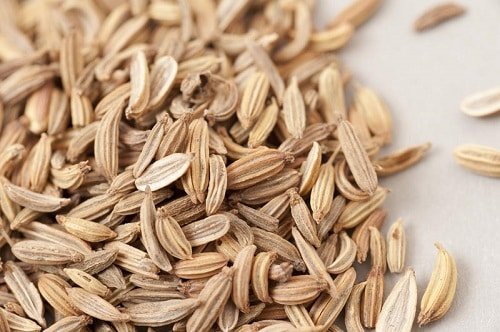
You can’t have a cup of tea without a biscuit or two for dunking purposes. And we Brits have created a plethora of biscuits to enjoy with our cuppa. Custard creams, Hob Nobs, and digestives are among my favourites, but then there are also Garibaldis (squashed fly), bourbons (for my American readers – a chocolate cream biscuit not to be confused with any form of alcoholic drink!), ginger nuts, malted milks… the list is endless. But have you ever tried an Abernethy biscuit?
The Abernethy biscuit is a wonderfully tasty nibble, a type of shortbread with the subtle taste of caraway.
Caraway?

If you’re like me, you typically associate caraway with German, Scandinavian, and Eastern European cooking. But, once I started looking into it a bit more, caraway has a fairly long history in British food. It is most commonly used in seed cakes which is something I admit I have never tried. (Add to my cooking list!) Caraway was apparently particularly popular in all manner of foods back in the 14th and 15th centuries. The Elizabethans would coat the seeds in sugar to enjoy as comfits. However, at some point, I’m going to say it fell out of widespread use and it definitely wasn’t one of the common kitchen herbs and spices when I was growing up.
Caraway is used in rye breads, as a seasoning for cabbage, in goulash, and even in a Latvian cheese. The seeds are also used in Abernethy biscuits.
Why Abernethy?
The Abernethy biscuit is not associated with the beautiful village of Abernethy, Perthshire. We’d still recommend you visit though as it is a fascinating place with ancient roots.

Instead, the biscuits are so named because they were supposedly created by Dr. John Abernethy. He was an English surgeon, born in London in 1764. He became apprenticed to a surgeon at St. Bart’s Hospital and eventually rose to become principal surgeon. Abernethy became known as much for his eccentricity as for his medical skills; his bluntness and brutal honesty with patients was matched by his contempt for anyone who disagreed with him!
Rather like the American Dr. Kellogg one century later, Dr. Abernethy was sure that many illnesses and complaints could be treated or prevented by the proper diet. Proper digestion was the route to good health, he reasoned. Caraway seeds are believed to be an aid to digestion to this day and so, whether or not he actually created the biscuit, it bears his name.
The Abernethy Biscuit
By the logic stated above, there is no apparent connection between the Abernethy biscuit and Scotland. Nevertheless, they remain a popular favourite north of the border. They are available commercially. Curiously, a look at the ingredient list of those available in shops does not indicate the presence of any caraway. I also first came across the recipe in a directory of traditional Scottish recipes. So, if there are any readers who can tell me about the Scottish connection, please leave a comment below!
Ingredients:
8 oz plain flour
3 oz caster sugar (granulated will do)
3 oz butter
Half a level teaspoon baking powder
Half a level teaspoon of caraway seeds
One tablespoon milk
One standard egg
Method:
Sift the flour and baking powder and rub in the butter until it is thoroughly mixed. Mix in the sugar and caraway seeds and then add the egg and milk to make a stiff dough.
Roll the mixture on a floured surface until it is the thickness required for a biscuit/cookie. Cut out with a three-inch plain cutter, rolling the trimmings to make more, as required. Prick the top of the biscuits with a fork and place on greased baking trays (cookie sheets) and bake in a pre-heated oven at 375F/190C/Gas Mark 5 for ten minutes until golden brown. After they have cooled, store in an airtight tin (unless you can’t resist eating them all immediately!)
The biscuits, as I mentioned before, have a pleasantly subtle taste of caraway. It is not enough to be overpowering, although you could certainly add more if you wish.

A tasty little biscuit that goes well with my afternoon cuppa!


